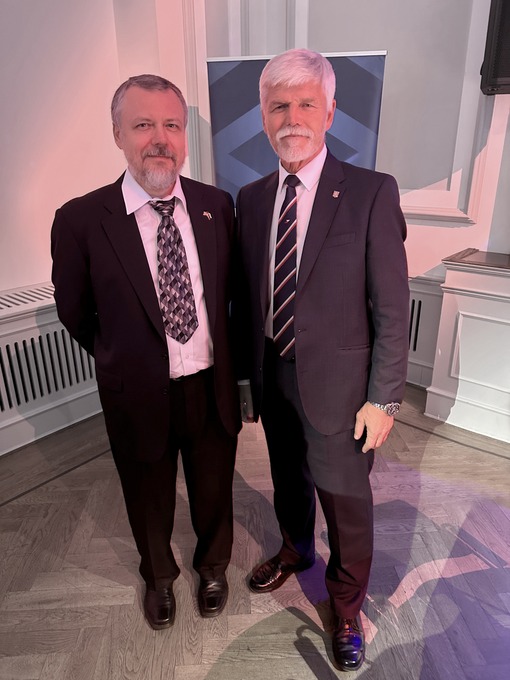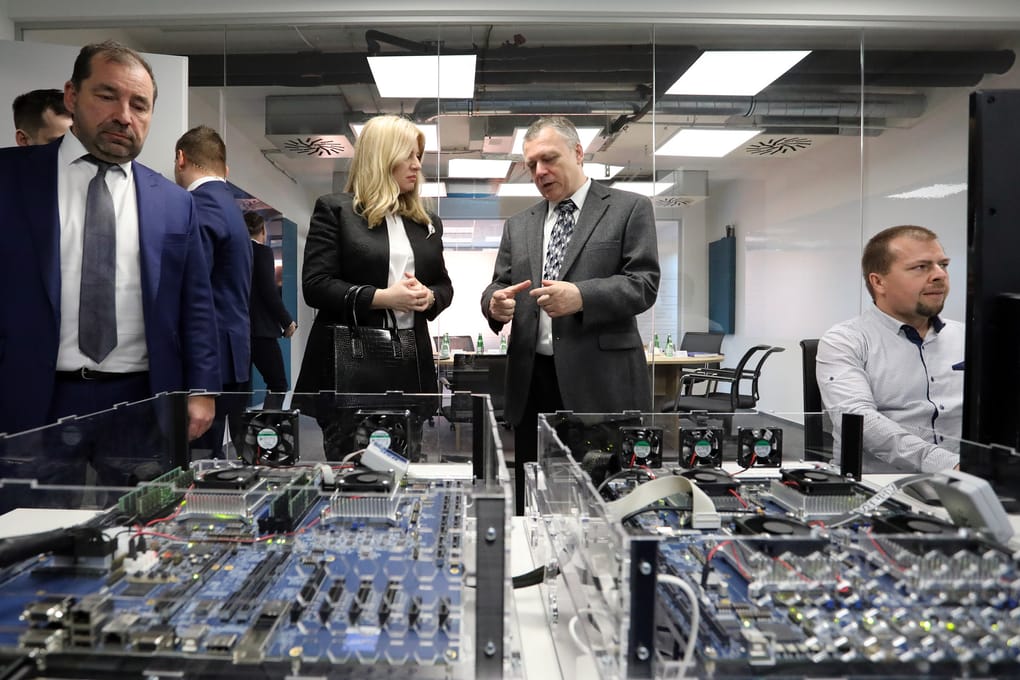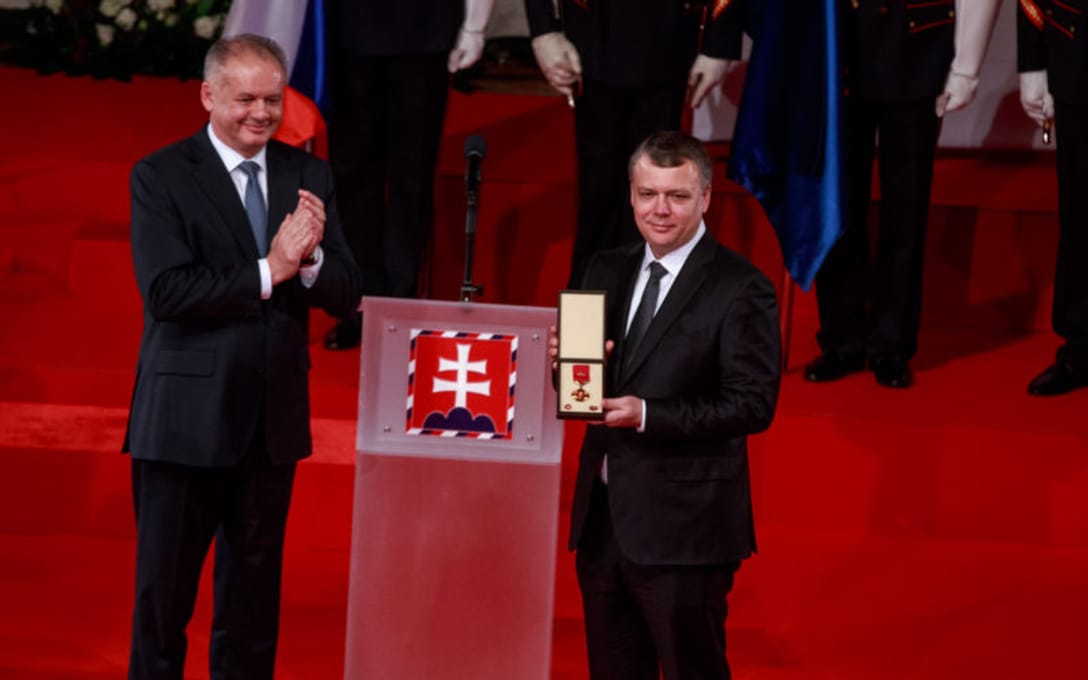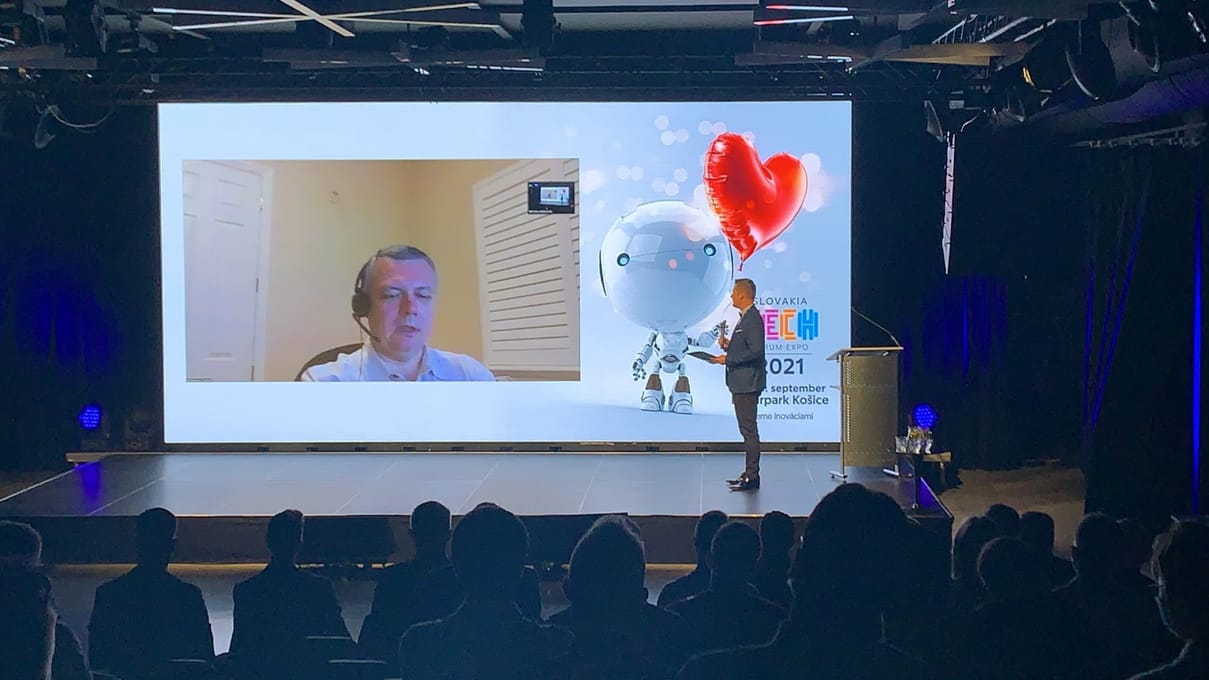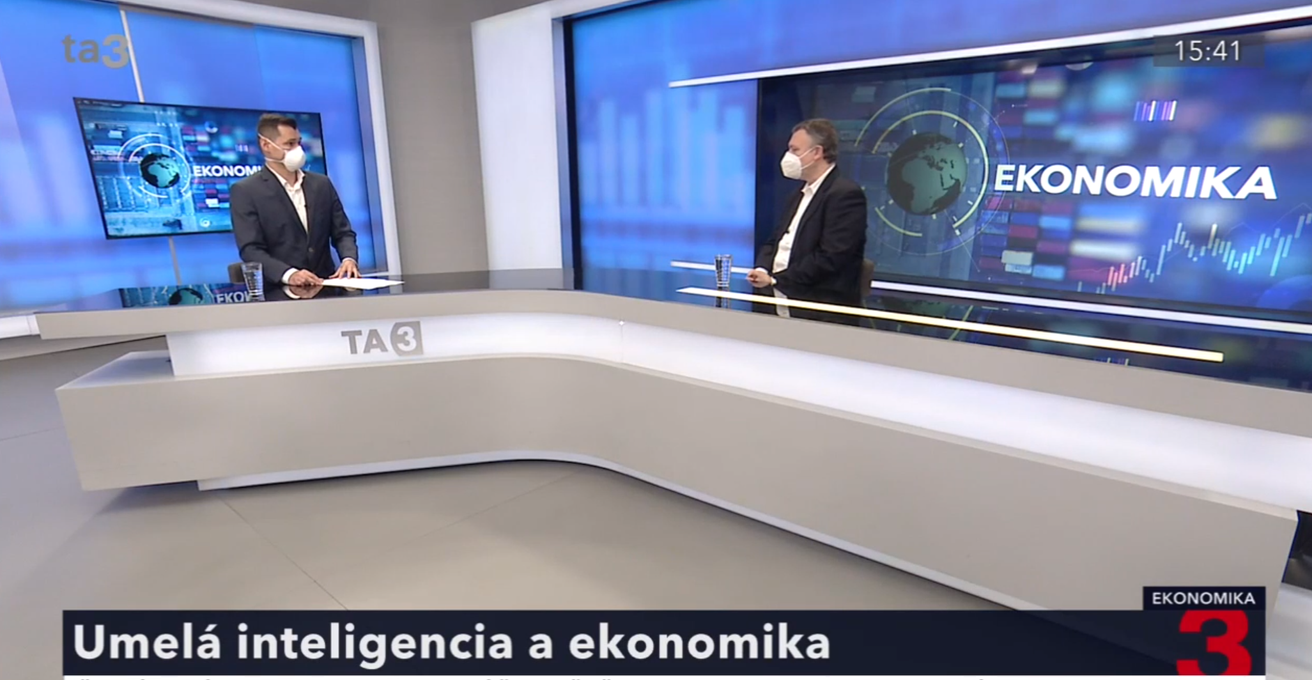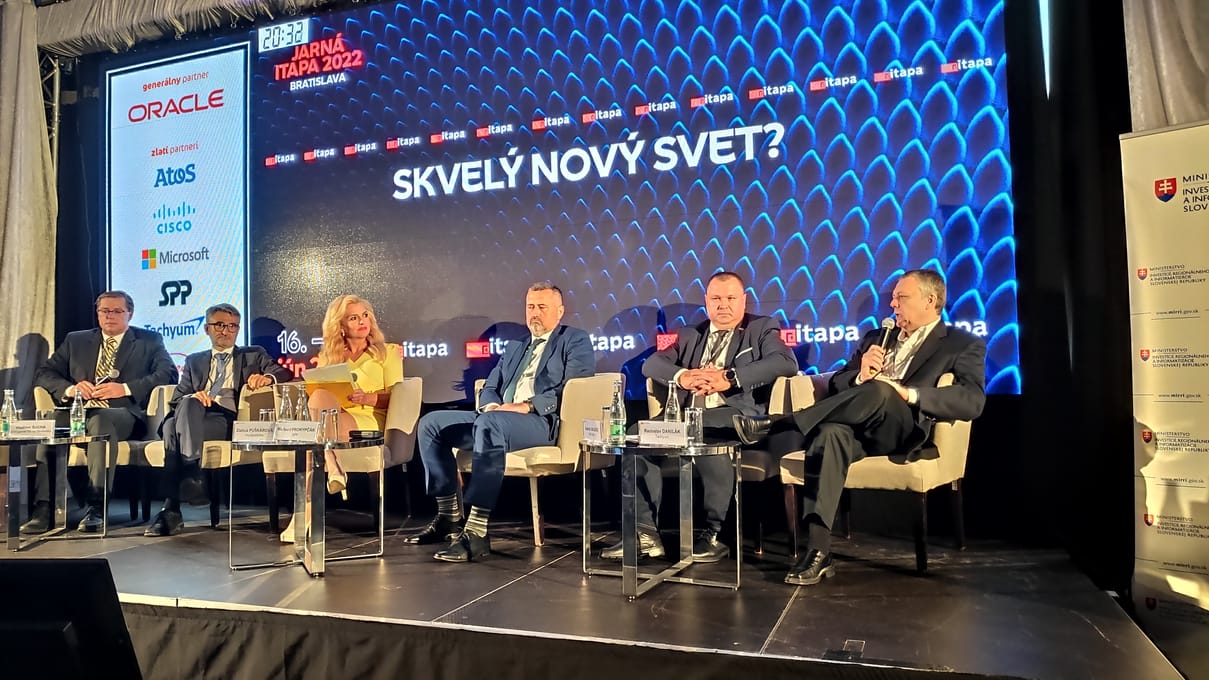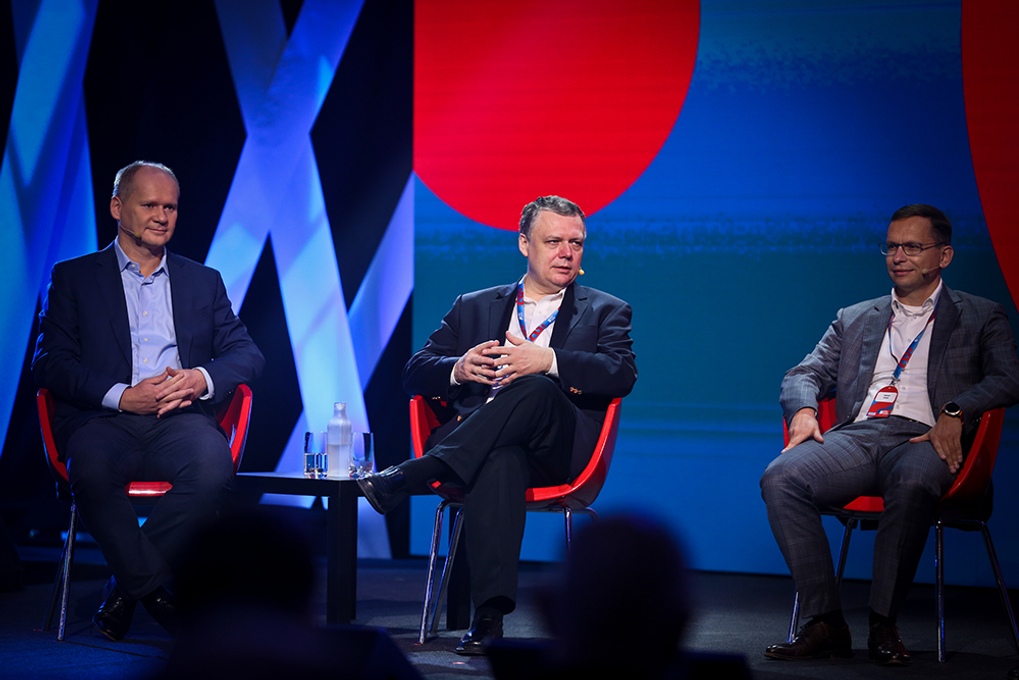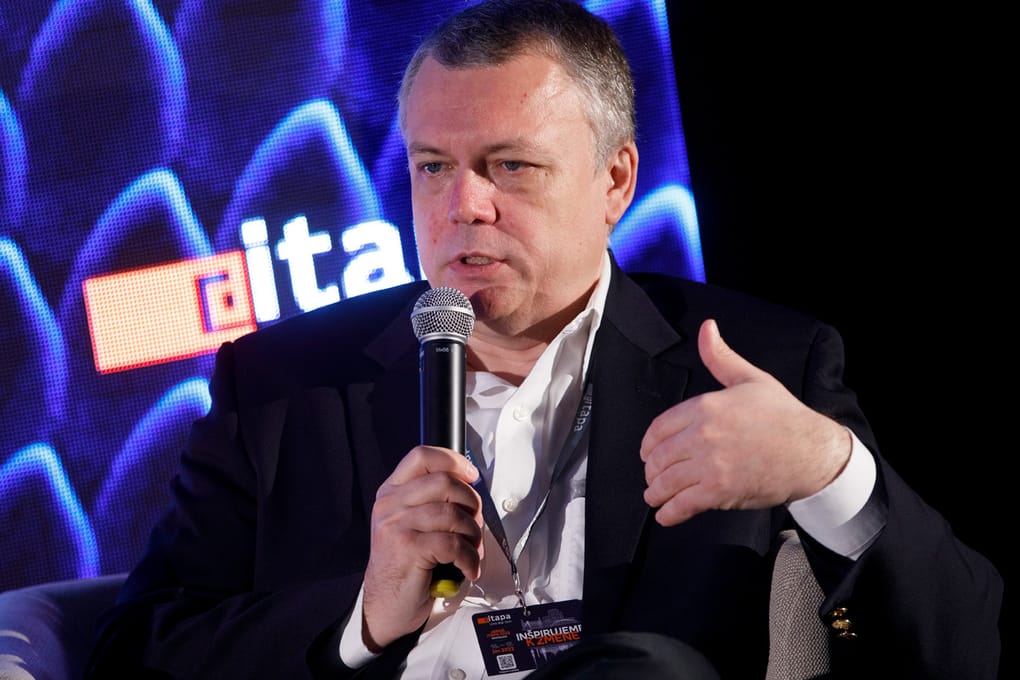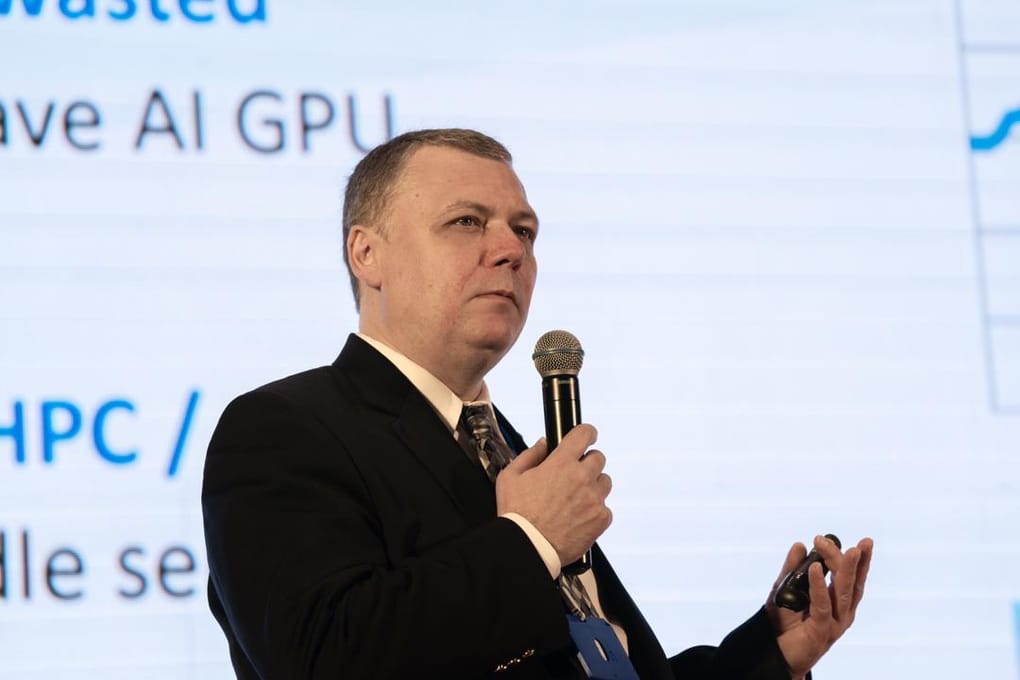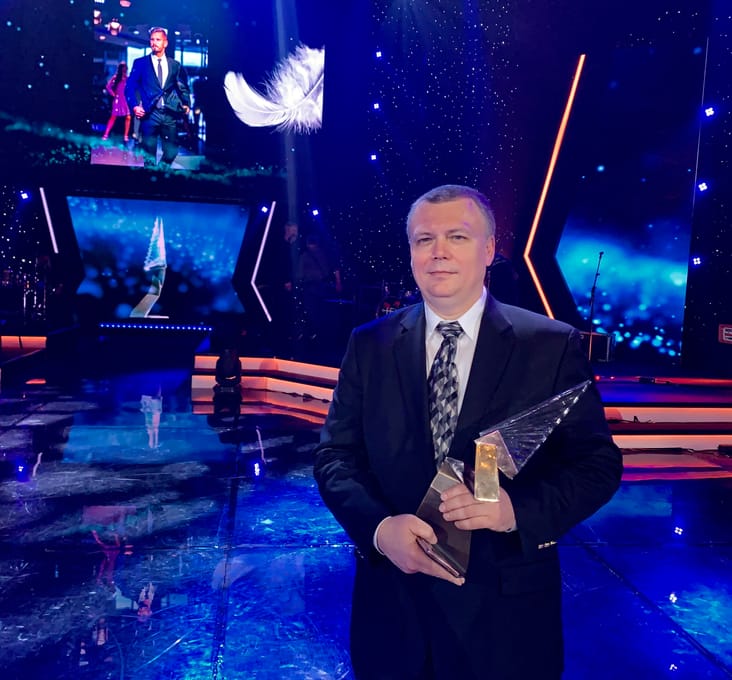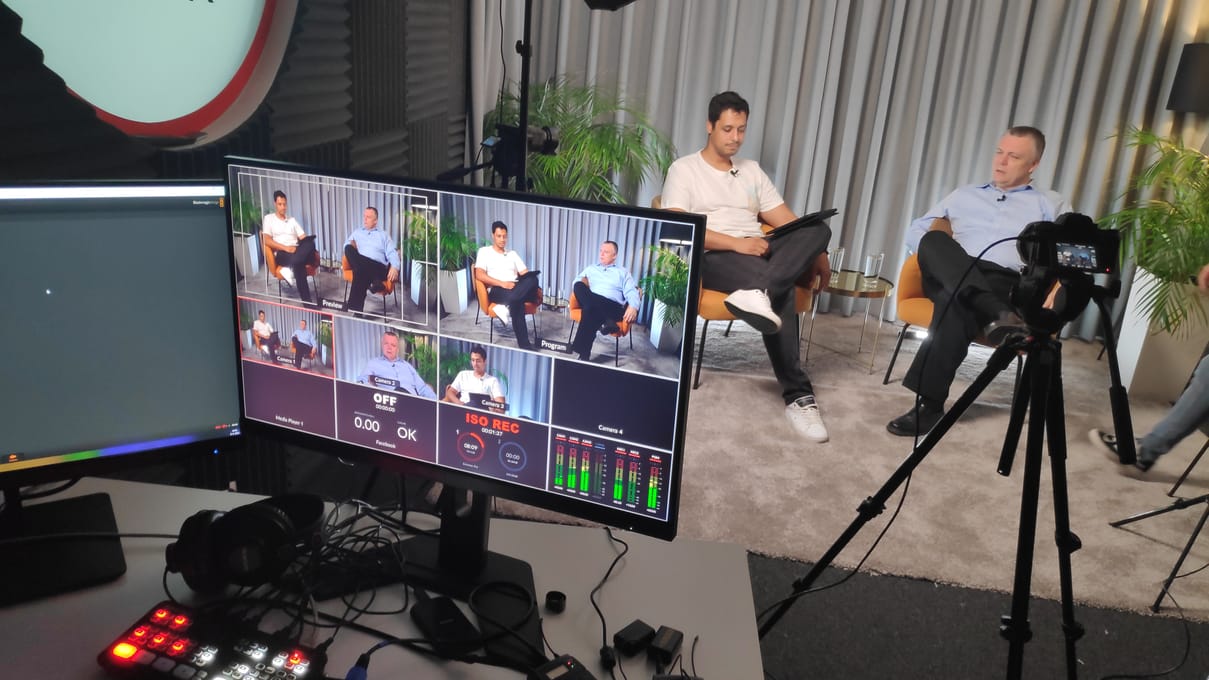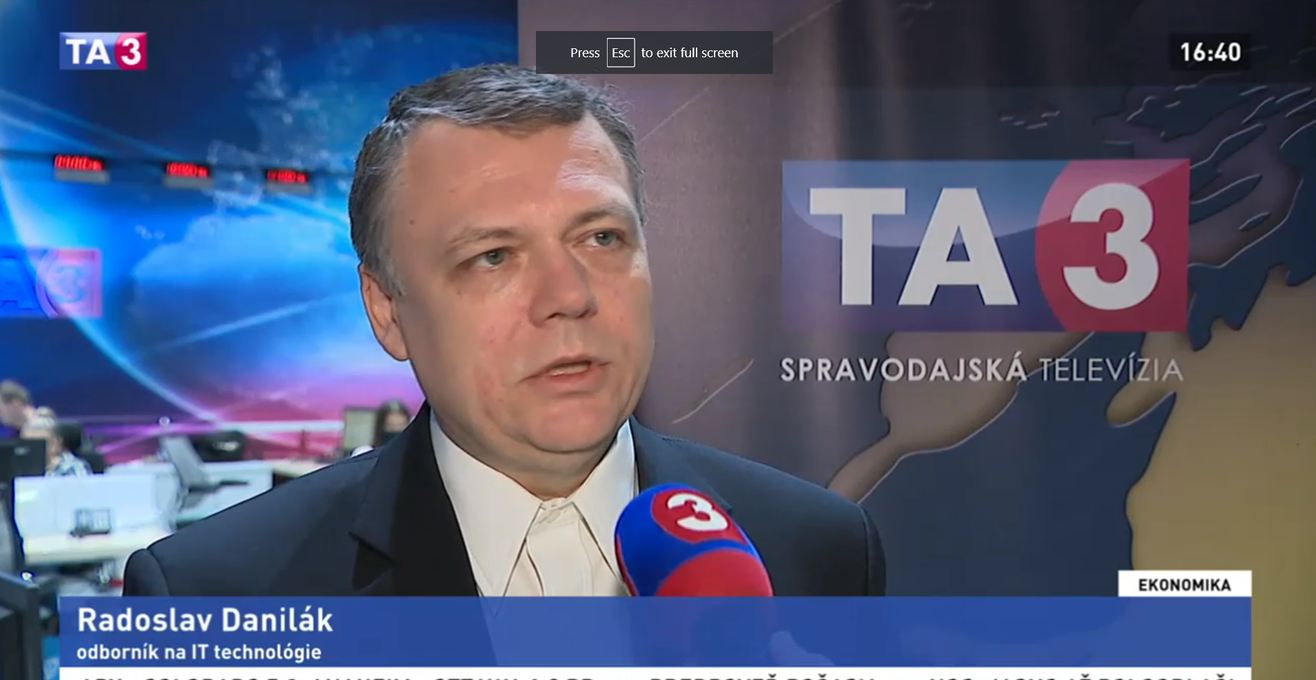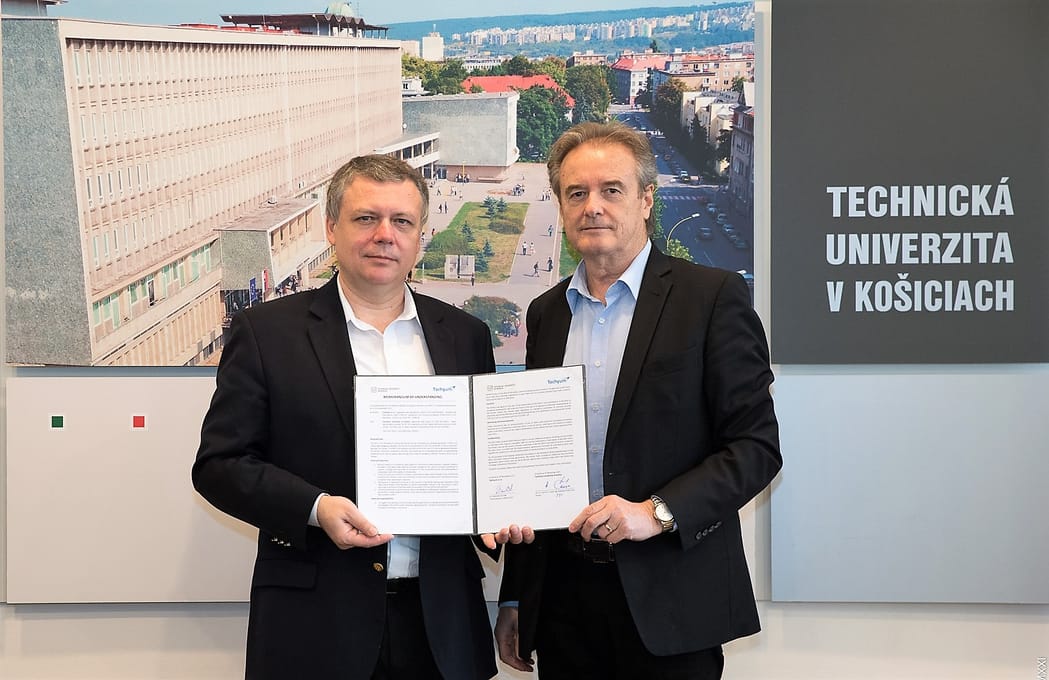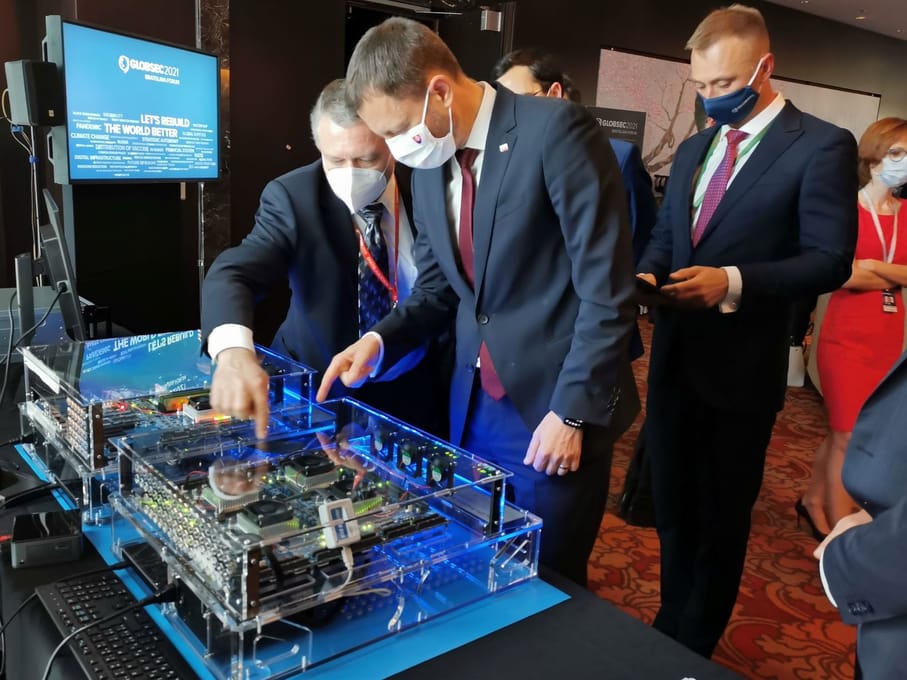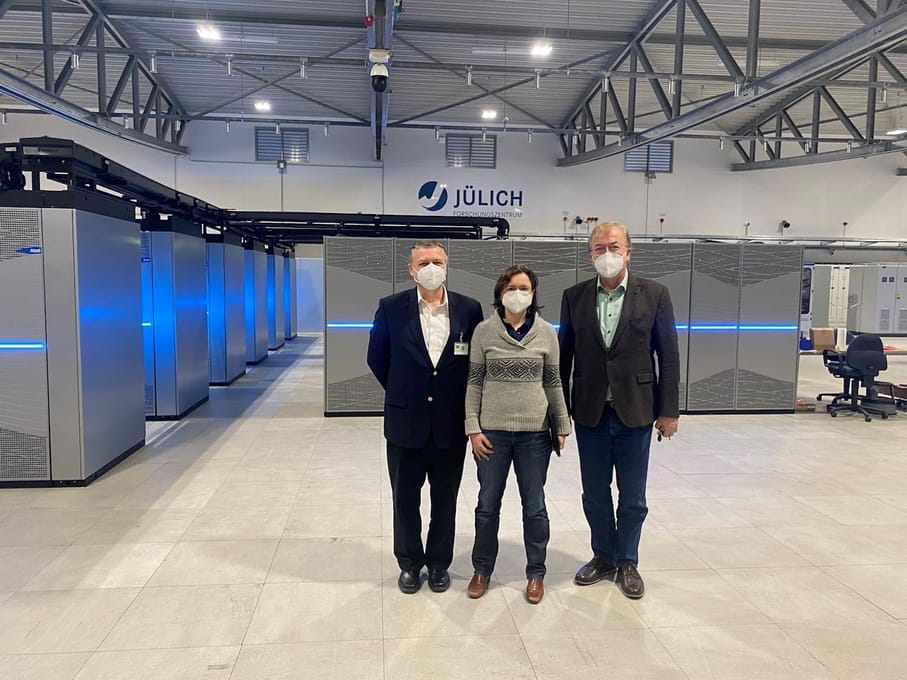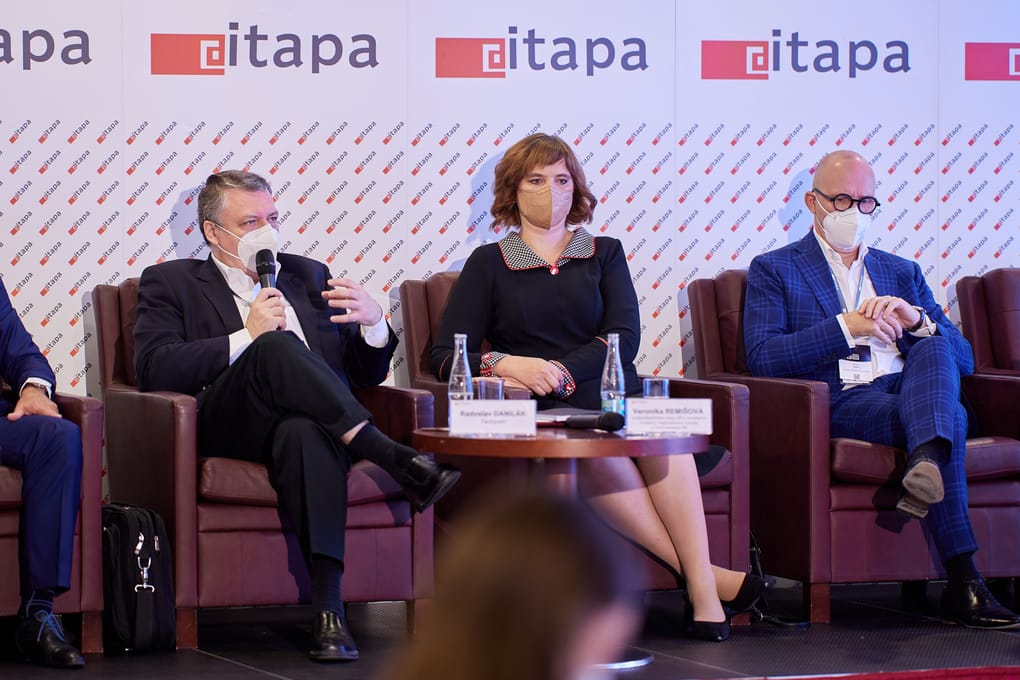- 30 years of industry experience
- 141 registered digital systems design patents
- 119 patents pending
Dr. Radoslav Danilak is at it again, making the impossible a reality. The well-known and respected processor architect and serial entrepreneur’s latest startup, Tachyum, is poised to release the world’s first universal processor next year with its flagship product: Prodigy.
Tachyum is located in the heart of Silicon Valley, nestled among tech giants Intel, AMD, and NVIDIA.
Projects
Dr. Danilak is no stranger to creating disruptive products.
While the industry at large continues to be resigned to mere incremental processor performance gains with each fabrication process shrink, demonstrated by historically stagnant processor specs over the last 10+ years, Rado suspected there must be a way to design around what appeared to be yet another impenetrable barrier caused by a device physics issue (very slow wires and very fast transistors in today’s processor chips).
The result of his latest efforts at Tachyum is the recently launched Prodigy, a breakthrough processor architecture that, for the first time, implements “Location Aware” computing. In his patent-pending processor architecture, Rado and his design team have implemented a hardware/software system that in over 90% of all cases, does not need to spend the extra time normally required to move data in order to compute.
-
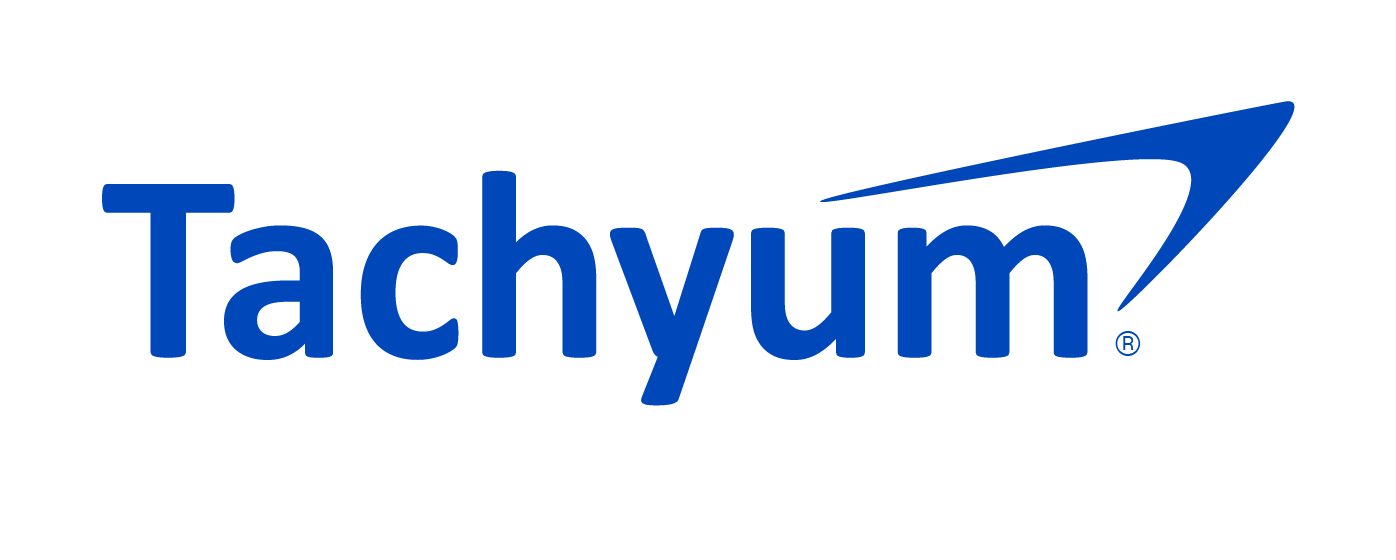
Tachyum
2016 - present
At Tachyum, Dr. Danilak is undertaking his most ambitious challenge to date.
Back in his natural element, leading a world-class chip development team as Co-Founder, CEO and Chief Architect, Rado (as he is known to customers and staff alike) is on a mission to solve the “processor performance plateau” (aka: Moore’s Law is dead).
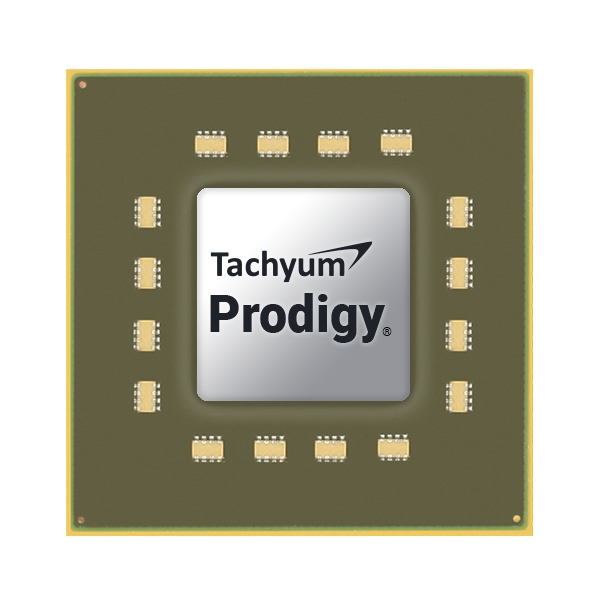
Prodigy’s revolutionary new architecture also unifies the functionality of CPU, GPU, and TPU into a single device, making it the world's first Universal Processor, enabling best-in-class performance across cloud/hyperscale, AI and HPC workloads while delivering 10x lower power consumption at 3X lower sell price (normalized to equivalent performance in MIPS) compared to its CPU competition.
Prodigy’s groundbreaking power efficiency changes the landscape of the data center industry – mitigating a power consumption crisis (SIA predicts that compute power consumption will exceed global energy production by 2040) with its ultra-low power operation, and turning every hyperscale data center into a low cost AI/HPC center of excellence.
Prodigy’s unique architecture allows data centers to be software-composable, enabling applications and workloads to be dynamically reconfigured as needed to keep servers fully utilized 24/7. Cloud workloads can be run during the peak daytime hours, and HPC/AI workloads can be run during off hours, solving the problem of low server utilization, which is frequently much less than 50%, costing the industry billions of dollars in unused resources.
Prodigy integrates 192 high-performance 64-bit custom-designed compute cores, allowing Prodigy to deliver industry-leading performance across a wide range of applications that encompass HPC, AI/ML, and cloud/hyperscale workloads. Prodigy integrates cutting-edge memory and I/O connectivity with 16 DDR5 memory controllers along with 96 high bandwidth PCIe 5.0 lanes for the optimal balance of compute, memory, and I/O to address the most demanding data center workloads. In addition, Prodigy runs the binaries for x86, Arm, and RISC-V as well as its own native instruction set, providing unprecedented flexibility and enabling simple, fast, out-of-the-box testing and evaluation for customers and partners.
Prodigy delivers industry-leading performance across a range of benchmarks. Its integer performance is ~4x that of the Intel 8380 and ~3x that of AMD’s 7763. Prodigy’s floating point performance is 3x that of the Nvidia H100 for FP64 and 6x the H100 for AI using FP8. In addition, Prodigy supports up to 4-socket servers in a 1U platform for optimal compute density, and provides rack performance per watt that is 13x the H100 and rack performance per TCO that is 17x the H100.
Prodigy is manufactured in industry-leading 5nm process technology, optimizing performance, power, and TCO for today’s performance-driven, green data centers.
In addition to mitigating the data center power crisis, Rado and his team believe Prodigy will do for AI and HPC, what the PC did for computers: make them available to everyone, at an affordable cost.
To learn more about Tachyum, visit the company website.
-
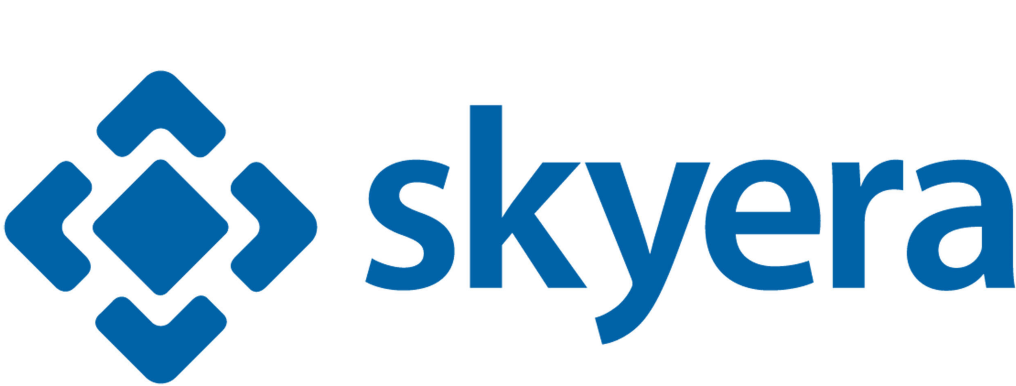
Skyera
2010 - 2015
Dr. Danilak’s next startup, Skyera, delivered the highest-density flash storage systems in the industry at the time (“a petabyte in a pizza box”) to government and commercial customers alike, by extending his Sandforce Life Extension technology by another order of magnitude.
Skyera was sold to Western Digital / HGST in 2014 for an undisclosed amount in a private transaction.

-

SandForce
2006 - 2010
The Sandforce Flash controller chip embodied a workaround to what was considered at the time, to be a fundamental device physics barrier: extending the useful life of inherently unreliable multi level flash devices. The success of Danilak’s Sandforce product, with its innovative “Life Extension” technology, was demonstrated by LSI’s acquisition of Sandforce.
Sandforce was acquired by LSI in 2011 for $377M.
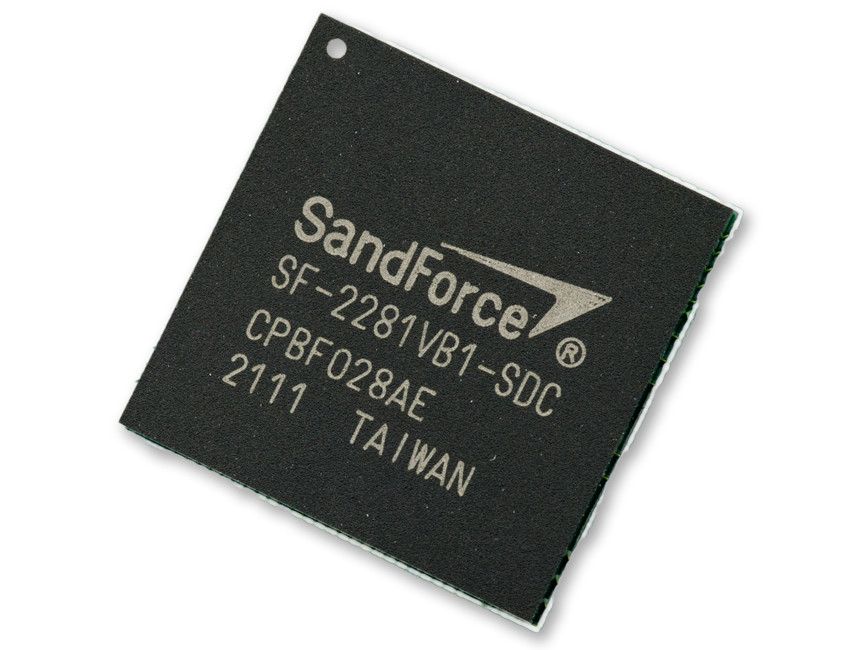
-

NVIDIA
2003 - 2007
At NVIDIA, as a processor architect, Dr. Danilak's work had a significant impact on their first two flagship GPU products: Tesla and Fermi.
After leaving NVIDIA, he co-founded Sandforce, where he designed a flash memory controller that ushered in the widespread use of inexpensive MLC (Multi Level Cell) flash memory, directly enabling Apple’s release of the MacBook Air and indirectly spawning the flash thumb drive industry.
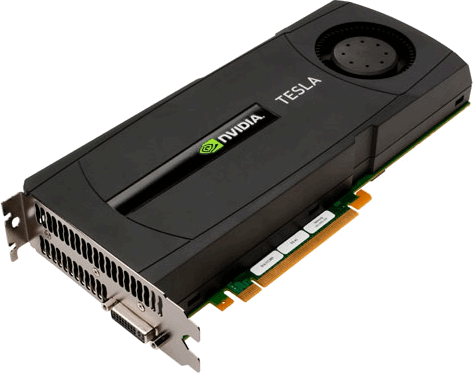
-
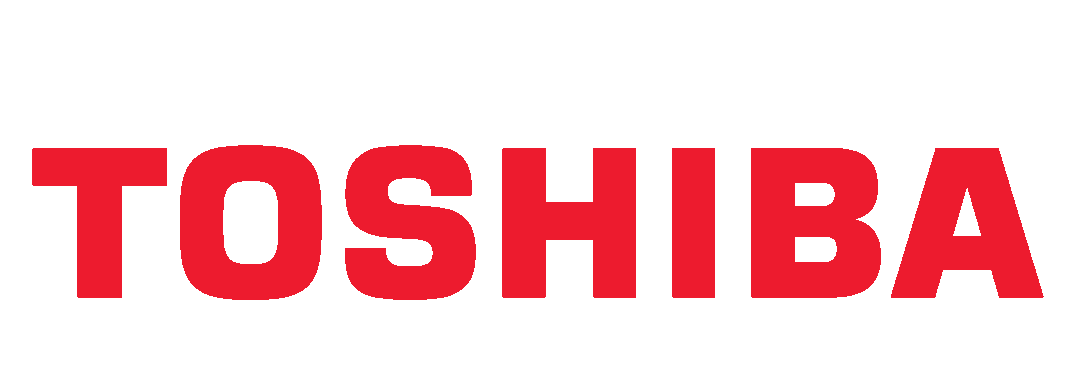
Toshiba
1999 - 2001
Processor architect on 7901, younger brother of MIPS processor, used in PlayStation 2.
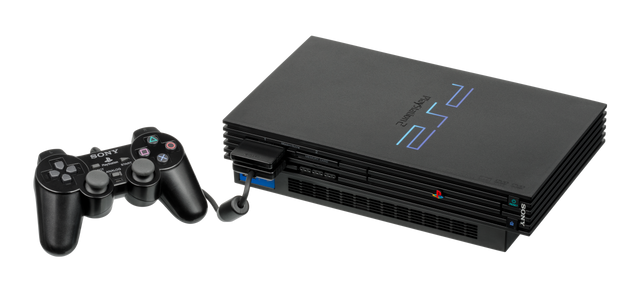
-
Gizmo Technology
1997 - 1999
Chief architect architecting 64 bit x86 6 issue out of order execution processors with 16 64 bit registers and prefix encoding similar to what later was used in AMD x64 architecture.Chief architect architecting 64 bit x86 6 issue out of order execution processors with 16 64 bit registers and prefix encoding similar to what later was used in AMD x64 architecture.
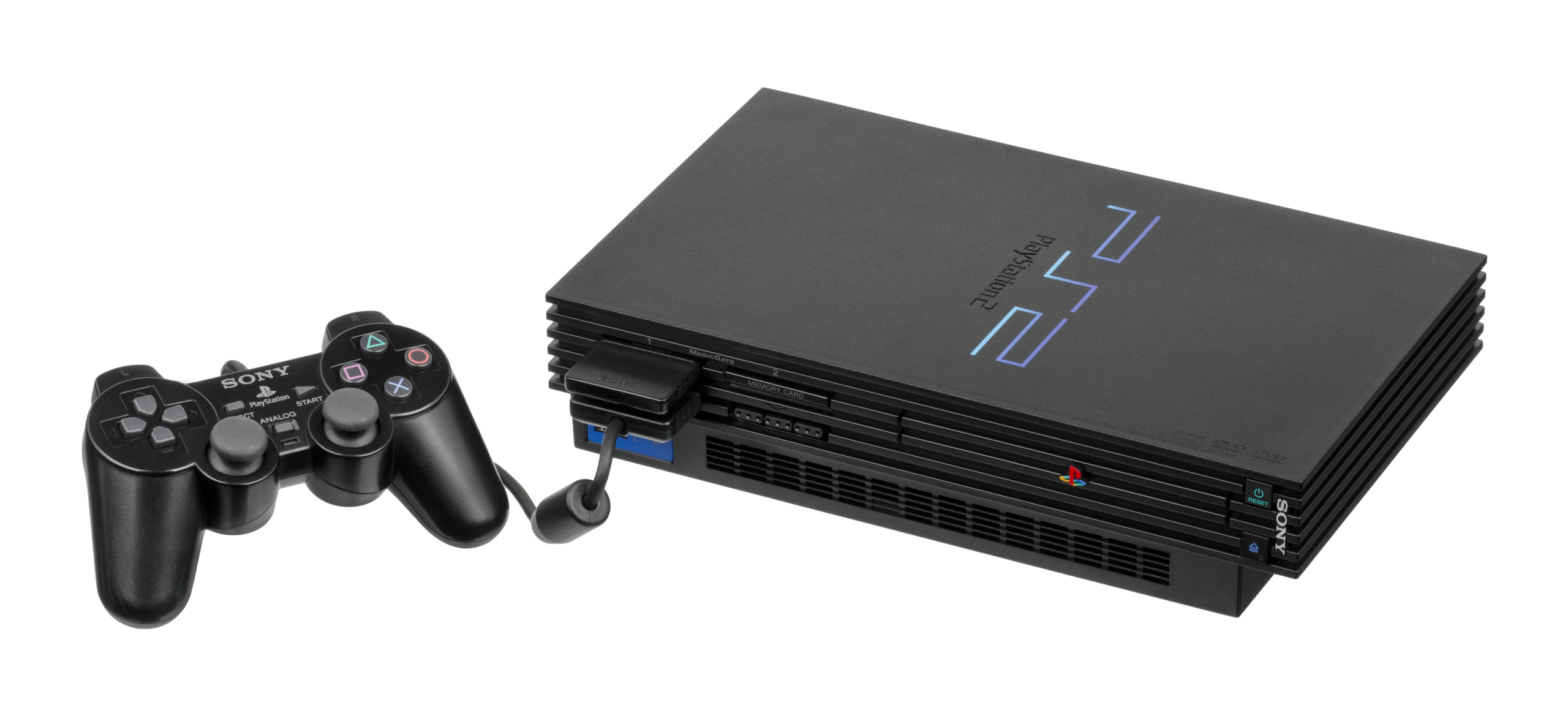
About Dr. Radoslav Danilak
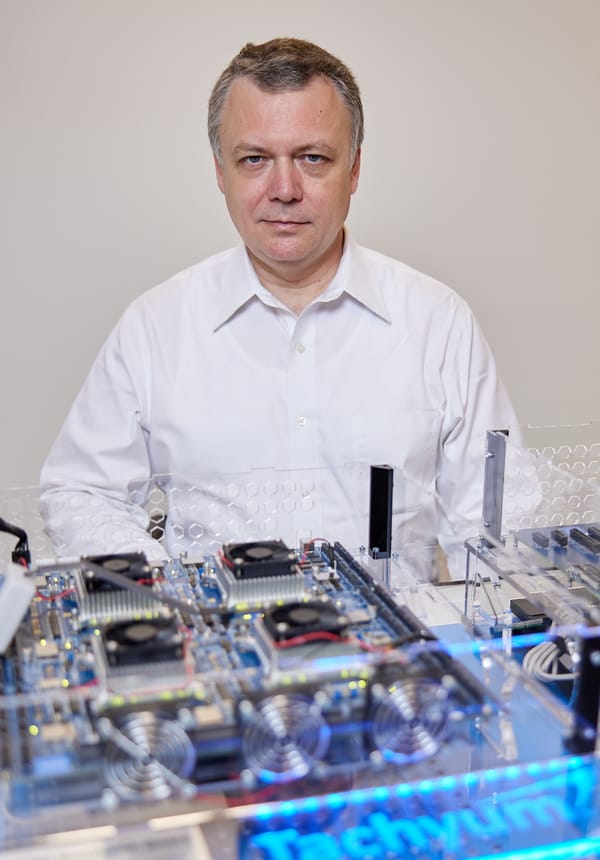
Dr. Radoslav Danilak was born, raised and educated in the Slovak Republic. After a stint in Slovakia teaching university compiler theory courses, he came to the US after being recruited by a tier-1 Silicon Valley VC (Venture Capital company). In Silicon Valley, Dr. Danilak distinguished himself as a world-class processor architect with his work in group which designed the Sony Playstation2 processor, and NVIDIA's Tesla and Fermi GPUs (Graphics Processing Units). He then struck out on his own as an entrepreneur, co-founding SandForce, and designing a disruptive Flash Memory Controller chip.
Rado Danilak has over 25 years of industry experience and over 130 granted patents designing state-of-the-art processing systems, and he has more than 100 patents pending.
Photo of 18
Awards
-
CESAwards Founder of the Year
Dr. Radoslav Danilak won the Founder of the Year award for the Slovakia Region in the Central European Startup Awards (CESAwards). Dr. Danilak received honors for being the country’s startup founder or co-founder who has shown strong leadership skills and achieved exceptional business results while being an inspiration to their team and a role model for the next generation of founders.
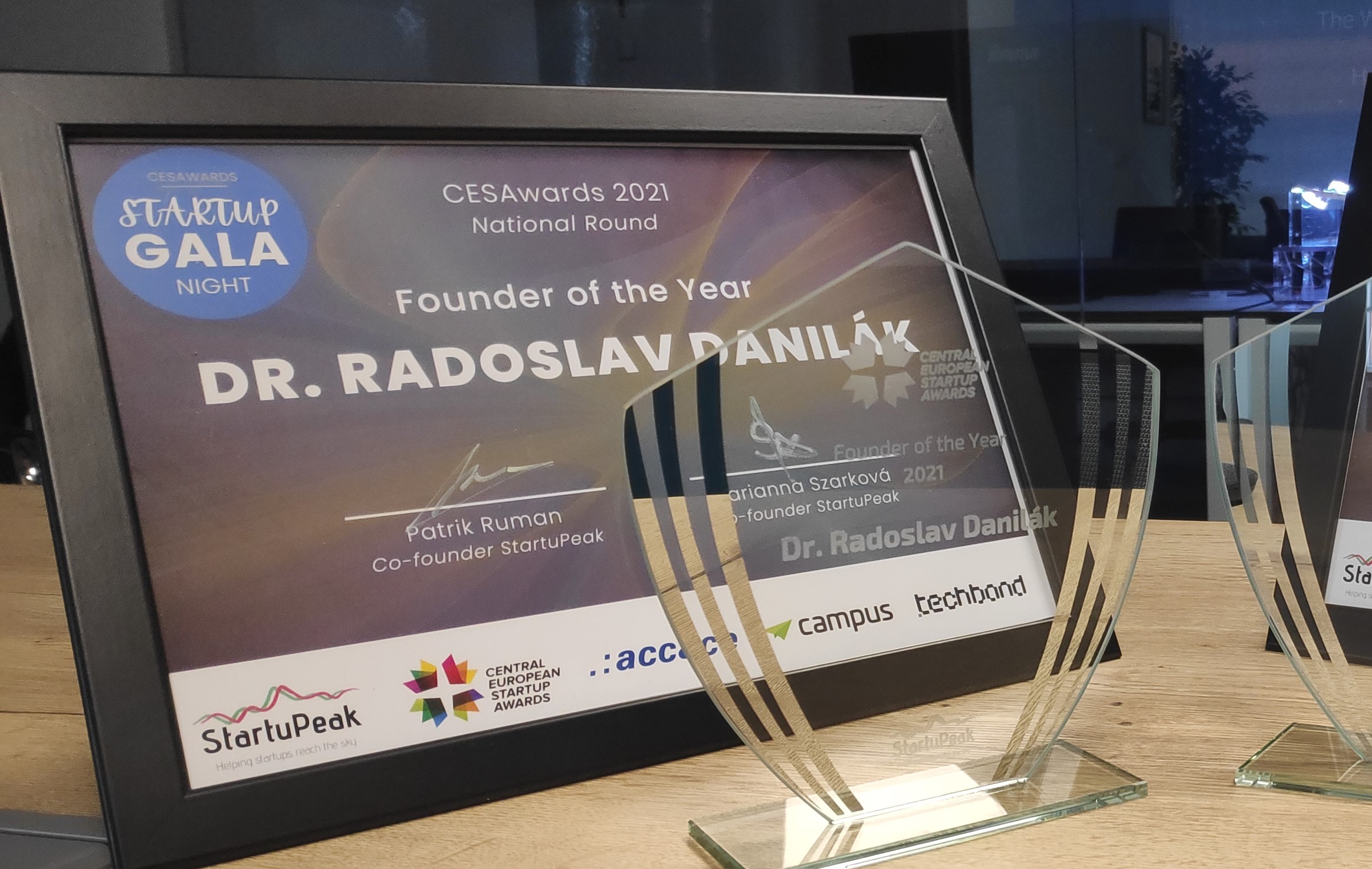
-
Crystal Wing Award
Dr. Radoslav Danilak, founder and CEO of semiconductor startup Tachyum Inc. and Tachyum s.r.o., was the recipient of the 2019 Crystal Wing Award in the Innovation and Startups category. This prestigious Award recognizes significant achievements of Slovaks who have attained exceptional expertise and success in their respective industries.
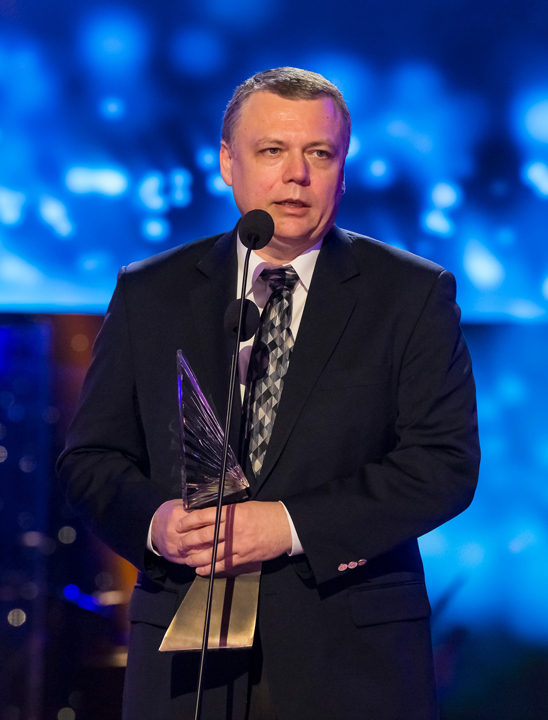
-
IT Person of the Year
Dr. Danilak was named Person of the Year based on the criteria of his contributions to technical development in IT; contribution to development of IT business in Slovakia; participation on advisory panels, professional associations and academic functions; and support of education, enlightenment and public information.
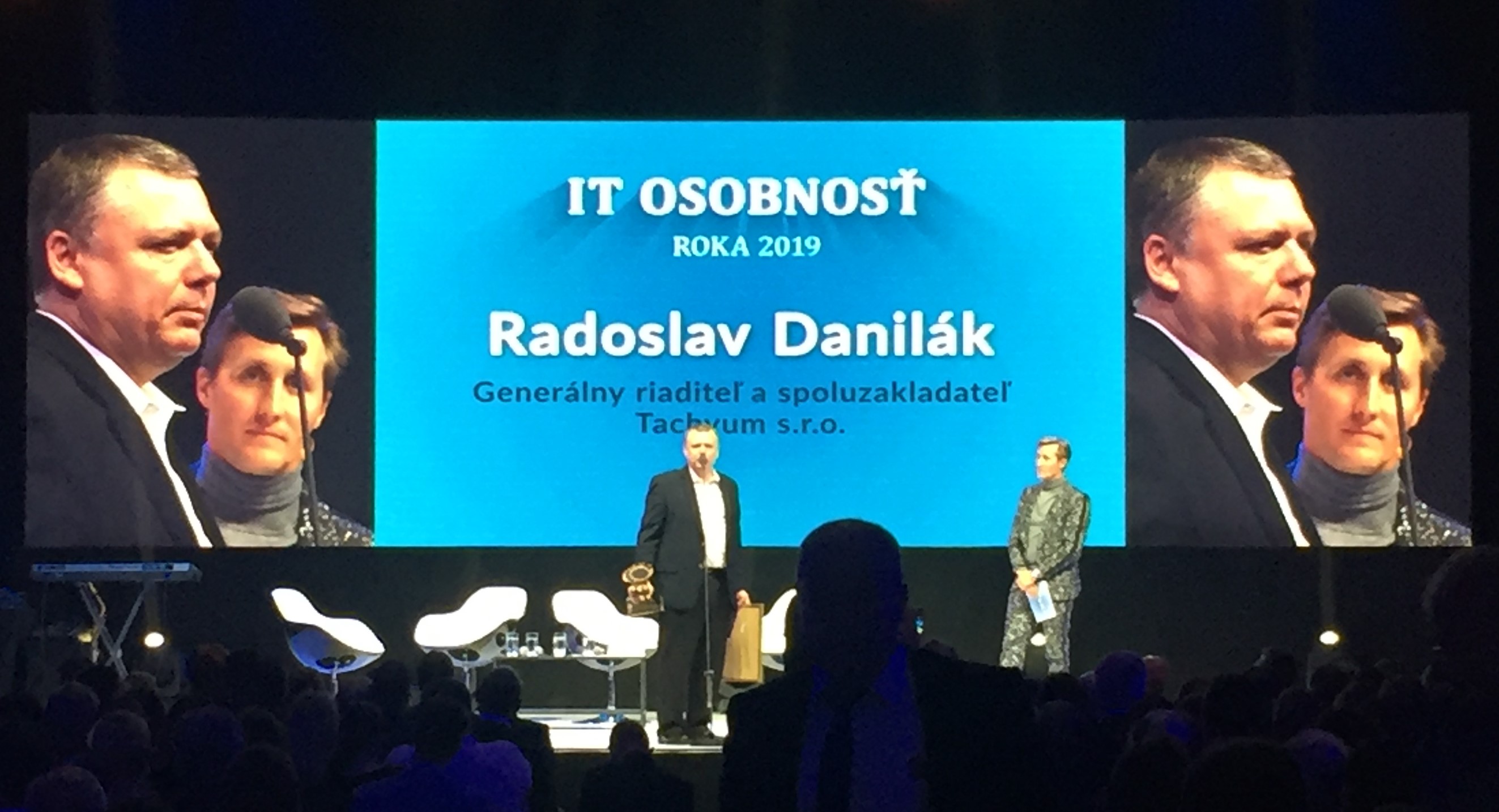
-
Pribina Cross Award
Dr. Danilak has received multiple prestigious awards in recognition of his contributions to the industry, including Slovakia's Pribina Cross, the nation's highest award for individual achievement, awarded by then President Kiska to Dr. Danilak.
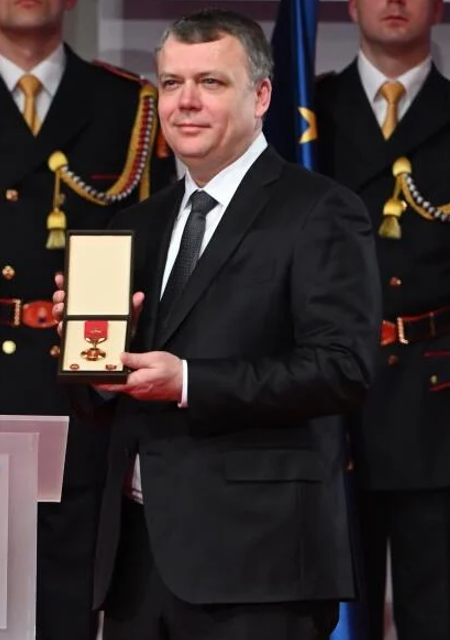
Media Recognition
-
Tachyum Hosts Slovak President to Showcase Prodigy Innovation
Morningstar | Mar 6, 2023
“It was an honor to showcase Prodigy’s capabilities to Slovakian officials today, and demonstrate how our universal processor will provide an immediate impact to the world’s data centers by enabling efficient processing of increasingly needy applications,” said Danilak.
-
Tachyum Delivering the World's First Universal Processor
TruthinIT | Aug 11, 2022
-
Tachyum CEO Talks up the Present and Future of Its Universal Chip
HPC Wire | Jul 18, 2022
The numbers raised eyebrows and skeptics have questioned those claims, but the company’s CEO Radoslav Danilak isn’t perturbed. In an interview with HPCwire, he acknowledged delays and hopes to get working chips to partners by the end of the year, with customers getting it sometime next year.
-
Tachyum Teases 128-Core CPU: 5.7 GHz, 950W, 16 DDR5 Channels
Tom's Hardware | Jun 11, 2022
When Tachyum unveiled the concept of its Prodigy Universal Processor at Hot Chips 18, it made quite a splash with a chip designed to run any code using a dynamic binary translator. It demonstrated high performance when executing both native and translated code.
-
Tachyum Prodigy T16128: Der Wunderkind-Prozessor
golem.de | Jun 10, 2022
Faster and more efficient than the competition: Tachyum promises a lot with the Prodigy CPU, and the CEO goes even further in this interview.
-
HPC, AI and ML Computing on a Single Chip with Tachyum’s Prodigy Universal Processor
Gestalt IT | May 17, 2022
Almost since the birth of data centers, operators have single-mindedly concerned themselves with performance numbers, but right now, that focus is being split into other priorities like cost reduction and environmental responsibilities that were on the sidelines before.
-
Tachyum unveils a monster processor that does everything
TechRadar Pro | May 13, 2022
The wait is finally over and the US-startup Tachyum has now launched its Prodigy universal processor which combines the functionality of a CPU, GPU and TPU in a single processor.
-
Tachyum plans 3nm Universal processor
eeNews Europe | May 13, 2022
The 3nm Prodigy 2 design will add the CXL memory interface and PCIe 6.0 lanes from the same IP suppliers and increase the number of cores. The plan is for samples in 2H24 and this has already been funded as a key European project says Danilak.
-
Tachyum tackles idle waste with reprogrammable Prodigy silicon
ReTHINK Research | May 12, 2022
FPGA specialist Tachyum has made an outlandish claim this week, by declaring its new Prodigy line of reprogrammable silicon as the “first universal processor.” With big performance claims to boot, the Prodigy FPGA is being positioned to target all manner of data center workloads, with video being a key use case.
-
Tachyum Delivers the Highest AI and HPC Performance With the Launch of the World’s First Universal Processor
Bloomberg | May 11, 2022
Prodigy is significantly better than the best-performing processors currently available in hyperscale, HPC and AI markets.
-
Human Brain-Scale AI Supercomputer
Connection Magazine | Apr 21, 2022
The AI revolution is creating a tsunami of change that is sweeping through virtually every sector of the economy, both public and private, and it’s having a profound impact on our daily lives.
-
Tachyum - Advancing to a Greener Era with AI
The Enterprise World | Feb 23, 2022
Tachyum-powered supercomputers are poised to address some of the world’s most important and challenging problems, including a wide array of global health challenges, as well as the ability to provide real-time language translation from any language to any other language, making the world a true global village.
-
The Human Brain-Scale AI Supercomputer Is Coming
Forbes | Jan 20, 2022
Any way you slice it, the explosive growth in AI technology means that consumers, corporations and government agencies will soon be able to exploit highly advanced AI systems in order to create life experiences that we can only dream of today. Human brain-scale computing is now looming on the horizon, and it could change your life more than electricity.
-
The 10 Hottest Semiconductor Startups Of 2021 (So Far)
CRN | Jun 16, 2021
These startups are taking on semiconductor heavyweights like Intel and Nvidia with new kinds of silicon solutions for compute, storage and networking, many of which are headed for the data center.
-
Meet Dr. Radoslav Danilak - The Man Behind Tachyum
Business Talk | May 22, 2021
Prodigy’s intense computing muscle can help AI use cases in particular. Convolutional neural networks, deep learning AI, symbolic AI, general AI, and bio AI are the disciplines that have emerged in recent years, each with its own set of algorithms and computing criteria.
Human brain modeling, meanwhile, is in high demand by R&D ventures due to its promise of extracting information from large data sets. The Tachyum Universal Processor Platform is suitable for projects like the real-time Human Brain Project, which needs more than 1019 Flops (10,000,000,000,000,000,000 floating-point operations per second – 10 exaflops), as well as supplying computing resources for science and engineering solutions that today’s systems cannot offer.
-
Interview with Dr. Rado Danilak, CEO, Tachyum
EDACafé | Mar 20, 2021
Dr. Rado Danilak is talking about Tachyum and its world first universal processor Prodigy, which was designed to replace the majority of existing chips provisioned in hyperscale (cloud) data centers, offering significant improvements in performance, energy consumption, server utilization and space requirements.
Dr. Danilak explained the dark side of digitalization and why we need powerful and efficient systems if we want the digitalization evolution to continue. He answered questions about Prodigy development progress and also personal questions what he likes to do in his spare time.





